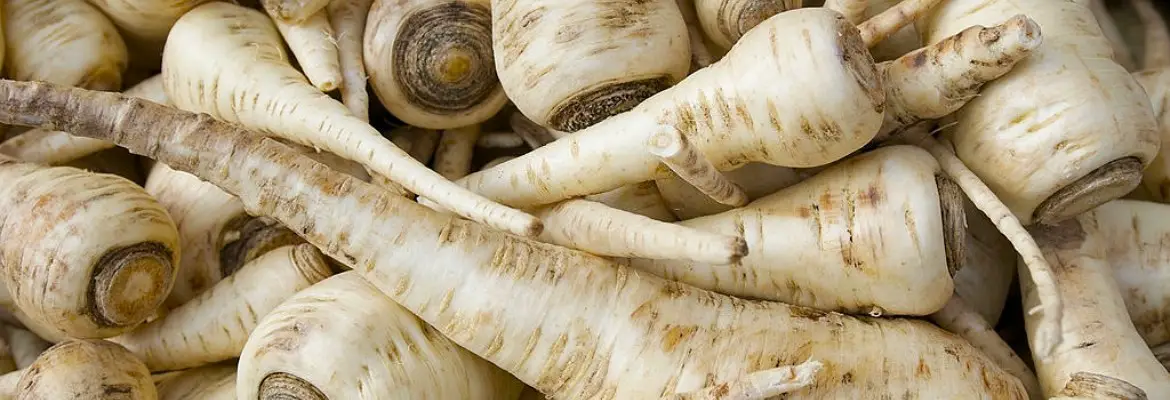Scientific name of Parsnip
Pastinaca Sativa
Other names of Parsnip
- Chukandar
- Chirivía
- Pastinaca
- Pastinaga
Nutrition facts of Parsnip
*Serving size = 100 grams = 3.55 Ounces = 1/2 cup
*DV= % Daily Value (%DV indicates how much nutrients contribute to a person’s daily diet from a serving of a food. DV assists you in determining whether or not a serving of food is high or low in a particular nutrient.)
| Nutrient | Amount | Unit | DV |
|---|---|---|---|
| Calories | 75 | KCAL | |
| Fat | 0.3 | GRAM | 0% |
| Protein | 1.2 | GRAM | 2% |
| Carbohydrate | 17.99 | GRAM | 7% |
Calories by source in Parsnip:
- Calories by carbohydrate in Parsnip = 92%
- Calories by fat in Parsnip = 3%
- Calories by protein in Parsnip = 5%
Fats and Fatty Acid profile of Parsnip:
- Polyunsaturated fat (PUFA) in Parsnip = 22%
- Saturated fat (SFA) in Parsnip = 24%
- Monounsaturated fat (MUFA) in Parsnip = 54%
Detailed vitamin profile of Parsnip, vitamin A, vitamin B12, vitamin B6, vitamin C, vitamin D, Folate, Niacin, Thiamin, and Riboflavin is shown in the chart at the end of the article.
Detailed mineral profile of Parsnip, Sodium(Na), Calcium(Ca), Copper(Cu), Iron(Fe), Magnesium(Mg), Selenium(Se), Phosphorus(P), Potassium(K) and Zinc(Zn) is shown the chart at the end of the article.
Availability of Parsnip
- Parsnip is available round the year
Complete nutrition facts of Parsnip
Click on the link HERE to download high quality, high resolution and print ready PDF version of the Parsnip nutrition chart/infographic.


